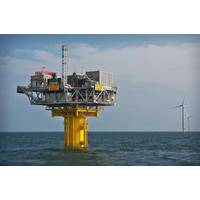France's increased limit on food-based biofuels in transport fuel could raise logistic and supply costs as it threatens to split the European single market for fuels, lobby groups for the car and oil industries said on Monday.
The French energy ministry issued a decree on Dec. 31 that raised the maximum level of biofuels in diesel sold at services stations in France to 8 percent by volume, higher than the EU-agreed limit of 7 percent.
FuelsEurope, representing the EU oil refining and marketing lobby, and the European Automobile Manufacturers' Association (ACEA) said in a joint statement that the decree may lead to a fragmentation of the single market for road fuels.
"A deviation from this standard by individual member states is neither in the interests of EU consumers nor the EU economy," they said.
"It puts consumers at risk in cases where their vehicles have a warranty that covers diesel fuel to a maximum of 7 percent FAME (fatty acid methyl ester) content."
EU energy ministers agreed last June to limit production of biofuels made from food crops, responding to criticism the use of such fuels stokes inflation and does more environmental harm than good.
The main beneficiaries of the higher limit will be French rapeseed farmers and processors. France is the EU's second-largest rapeseed producer after Germany and home to its largest biodiesel maker, Saipol.
News of the French decree contributed to a near 4 percent rally in European rapeseed futures last week, traders said.
An agriculture ministry spokesman said the decree was a technical adjustment to allow oil companies to meet existing targets without resorting to imported palm oil.
The energy ministry did not return a request for comment.
(Reporting by Michel Rose and Gus Trompiz; Barbara Lewis in Brussels)

